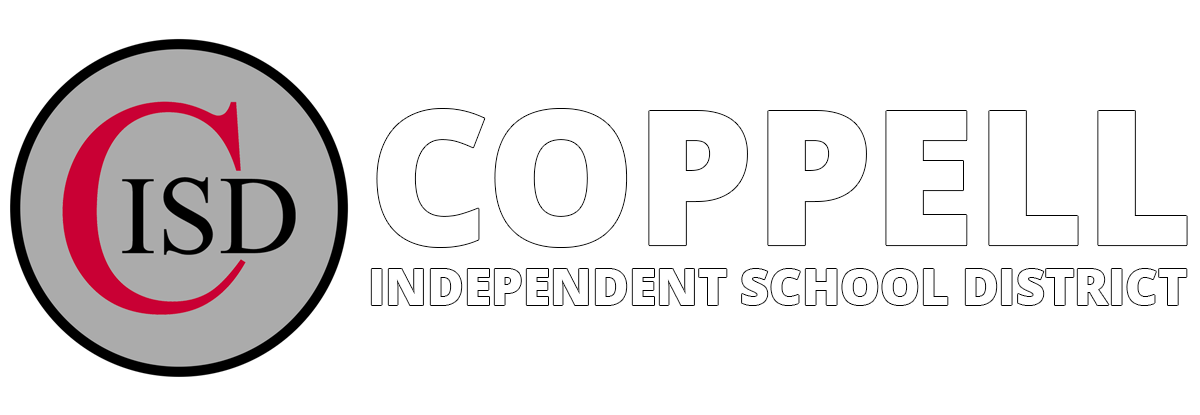Failing Forward: Denton Creek Students Embrace the Art of Setbacks Through STEAM
Coppell ISD will be spotlighting the STEAM specials class at all elementary schools. This week’s spotlight is on Denton Creek Elementary and STEAM Teacher Ricki Rodriquez.
For Ricki Rodriquez, a former third grade STEM Academy teacher from Lewisville ISD, the chance to teach STEAM all day at Denton Creek Elementary sounded like a dream.
While STEAM (Science, Technology, Engineering, Art and Math) curriculum is packed full of knowledge students can apply to real-world problems and careers, Rodriquez believes that planting seeds of resilience and determination is where learning truly begins.
"Building a growth mindset helps them to push themselves to be more creative and not just stay on the safe route with building and designing. It really helps foster improvement because a lot of times, kids think there's no improvement needed," she said. "That’s what future engineers need to know, and I feel like I’m building that confidence in them and setting them up for the future."
Recently, Denton Creek learners embarked on an experiment during their STEAM specials class. Rodriquez challenged students to build structures strong enough to support the weight of a Webster's New World Children's Dictionary in 15 minutes or less — an impressive feat, considering the hardcover book contained nearly 900 pages and weighed more than four pounds.
Armed with only 30 toothpicks and 20 gummy bears per group, the students dove into the seemingly impossible task armed with confidence. When some requested more materials, Rodriquez reminded them that in the world of engineering, "supply shortages'' are a reality, teaching them about resource limitations and supply and demand.
As the pairs and trios of young architects meticulously constructed three-dimensional shapes, their structures repeatedly crumbled under the weight of the dictionaries. Frustration filled the room as the timer sounded.
“That was so hard!” one student shouted, but it was at this moment the true lesson began.
Rodriquez unveiled her own creation — three four-sided pyramids forming a sturdy foundation — and showed her students why civil engineers use triangles, the strongest structural shape, to build bridges. She then prompted her students with discussion questions, encouraging them to dissect their failures:
Was your structure successful on the first try?
What did you do when it collapsed?
How did you know to change the shape of the structure each time it failed?
Even though you failed multiple times, were you able to be successful?
In this moment of vulnerability and self-reflection, Rodriquez asked the students to discuss examples of “failures” that turned out to be great successes. Among them were Bill Gates, penicillin, slinkies and Silly Putty.
Realizing they had been on the right path all along reignited their enthusiasm.
“Mistakes aren’t called failure,” fifth grader Rishma Metha said. “It makes me feel happy that mistakes are there to help us learn.”
The class then settled in for a reading of "Rosie Revere, Engineer" by Andrea Beaty. Through a whimsical tale of imaginative gadgets and gizmos, the story's protagonist, Rosie, learned that her initial failure was, in fact, a successful first attempt. The story reinforced the idea that making mistakes was a natural part of the learning process.
By the end of the class, the student gleaned a profound lesson through a fun and collaborative hands-on activity as fifth grader Jordyn Portier so eloquently shared.
“Your mistakes only help you,” she said. “Really, the only way you can fail is if you quit.”
New for the 2023-2024 school year, Coppell ISD is offering a STEAM (Science, Technology, Engineering, Arts, and Math) curriculum — including coding, robotics, and the engineering design process — at all of its elementary schools. This instructional design promotes higher-level thinking and creativity for Kindergarten to 5th grade students. Each of the district’s 11 elementary schools has a full-time STEAM educator and the STEAM program is being provided to Kindergarten to 5th grade students at all elementary schools as part of the weekly “specials” class rotation, in addition to music, art, and physical education.


